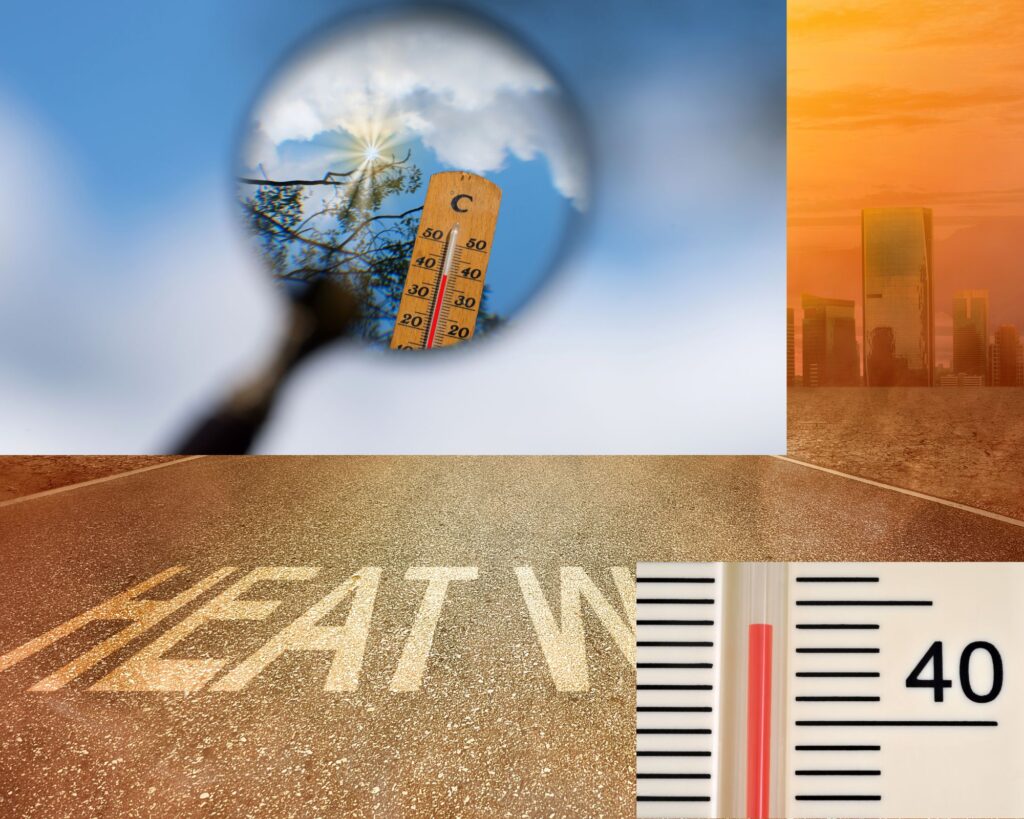
Source: AUN News
Leading scientists have decided that the record temperatures in the UK last week without human-induced climate change would have been “virtually unthinkable.”
On July 19, the UK experienced temperatures that exceeded 40°C for the first time.
According to experts, these would have been 2 to 4 degrees colder without human-caused climate change.
They claim that it is a preview of what is to come because more heatwaves, fires, and droughts are expected in the years to come.
The UK experienced substantial disruption due to the intense heat, and experts have warned that many deaths would be tied to the temperatures. Wildfires have occasionally destroyed homes and natural areas.
Since the beginning of the industrial revolution around 200 years ago, the world has warmed by 1.1C. Activities like burning fuels have increased the Earth’s temperature and released greenhouse gases into the atmosphere.
The World Weather Attribution group, a group of top climate scientists who get together after an extreme weather occurrence to assess whether climate change increased its likelihood, has announced their findings.
They examined data from Cranwell, Lincolnshire, St. James Park in London, and Durham, three separate meteorological stations registered high temperatures.
According to Dr. Friederike Otto of Imperial College London, who is in charge of the World Weather Attribution project, such temperatures are still unusual even in today’s environment, and we should expect them somewhere between once every 500 and once every 1,500 years.
However, she asserted that if global temperatures climbed, there was a greater chance that extreme heat would occur more frequently.
She asserted that climate change undoubtedly contributed to the heat we experienced last week. According to her, these temperatures are at least 2C higher than they would be in a world without human-caused climate change, though the actual increase is probably closer to 4C.
UK sea level increase is accelerating.
Warning issued for cities to get ready for more wildfire
A straightforward guide to climate change
Scientists combine historical temperature records with sophisticated mathematical models when determining how human-caused climate change influences the weather.
“We can remove these things from the model and recreate a world that might have been without climate change since we know very well how much greenhouse gases have been added to the atmosphere since the beginning of the industrial revolution,” Dr. Otto explains.
It compares the two scenarios — a world that warms by 1.1C and a world that doesn’t — helps the scientists.
How we know that humans are to blame for climate change
The scientists claim that the UK’s houses, hospitals, schools, and transportation systems cannot tolerate the high temperatures, showing that the country is not acclimated to global warming.
Global warming is impacting every region of the world, with this year’s excessive heat hurting nations including India, the US, Australia, Spain, and Germany.
Politicians worldwide pledge to keep temperature increases below 1.5C, but environmentalists claim that the pace of change is far too sluggish.
Greenpeace UK’s head of climate, Rosie Rogers, told BBC News that “the climate has already altered; we are and will continue to bear the effects of government inactivity.” How bad things get will depend on what governments decide to do to wean themselves off of fossil fuels, if anything at all.
The UK is responsible for stepping up and quickly reducing emissions to zero, she added, noting that it is one of the most significant historical emitters in the world. The incoming prime minister must heed these climate concerns and serve as a role model for others.
According to scientists, to combat climate change, we must drastically reduce our emissions, modify how we create and consume energy, and conserve the environment because it absorbs greenhouse gases.
Analysis by: Advocacy Unified Network

Last year the maximum temperature in London was 36 degrees I think
We have witnessed death due to rising heat in London